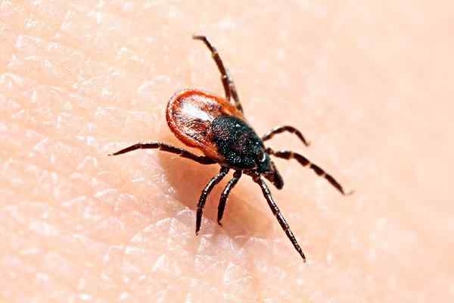Tick Tips For Pet Owners That Might Surprise You
Ticks are a serious problem for pets, and for the humans who love them. Ticks are linked to the spread of Lyme disease, anaplasmosis, ehrlichiosis, Rocky Mountain spotted fever, babesiosis, bartonellosis, hepatozoonosis, and the list goes on. Not every tick that feeds on you or your pets is going to have a disease and not every tick can carry every disease. But we're not going to focus on that in this article. It is enough to know that ticks are a health threat. Here are some tips that will help you protect your pets and your family from this threat. Some of them may surprise you.
What Keeps Ticks Away From Greater Houston Yards?
Ticks are a seasonal problem for Greater Houston residents and they spread from one property to another very easily. While there are preventive measures that homeowners can take to keep ticks away, nothing is more reliable than professional services.
At Modern Pest Control, we have more than 55 years of experience protecting our community from ticks. Our services start with detailed property assessments to understand the way that ticks interact with each home that we treat. The comprehensive treatments that we provide utilize environmentally friendly products that target the many hiding spots that ticks will find. In addition to the seasonal treatments that we offer, we’ll always make sure that our customers are prepared with the knowledge of how to deter ticks between visits. For more information on tick control, call us today.
How To Keep Ticks Off Your Pet
Anytime your dog or cat leaves the house, there is a chance ticks can come back in with them. Ticks wait in tall grass or on other vegetation to cling onto your pet as he or she passes. Your goal should be to make your pets uninhabitable.
While collars are certainly not the end-all for ticks, they are certainly a great place to start for tick protection, especially since many ticks prefer to feed on the ear. When they climb onto your pet's leg and climb up to the ear, they inevitably come in contact with residue left by the collar and BAM! Okay. Maybe not bam. But it doesn't take long for this residue to terminate those ticks.
If you think your dog or kitty has ticks, a powder can be helpful to deal with them topically. Many powders contain an active ingredient called fipronil which is an insect growth regulator. It causes paralysis and death for ticks without harming your pet.
Routine baths can keep your dog tick free. Flea and tick shampoos often contain permethrin. Cats are more sensitive to the toxicity of permethrin than dogs. Consult your veterinarian when choosing any flea or tick product for your pet.
One product we don't usually think of is mosquito repellent. When you get a repellent that is created for use on dogs and cats, it will also protect your pets from ticks. Spray this on your pet when you'll be outside in an area your pet could pick ticks up.
How To Keep Ticks Out Of Your Yard
If you have pets that go outside in the yard, they are at a higher risk of bringing ticks into your home. Use the following tips to reduce this threat.
Create a fenced area for your pet. Fences are great for keeping your pet from exploring grassy locations around your property and moist locations around your foundation where ticks are likely to be. It also works to keep wildlife out, so animals don't bring ticks in close to your home.
A neat and trimmed yard is resistant to all wildlife. Animals prefer yards that feel like nature.
Animals, but especially rodents, will be attracted to a yard that has clutter in it. They go from object to object to hide from bird predators. Store items to resist wildlife.
Animals are always looking for food. Keep exterior trash in sealed, secured containers, and install fencing around gardens, berry bushes, fruit trees, and other food sources.
Ticks require a lot of moisture to survive. Address any conditions in your yard that promote moisture, especially near your foundation.
How To Keep Ticks Out Of Your Home
Your pets aren't the only animals that can bring ticks into your home. When rodents chew their way in, they can spread ticks around.
Do a detailed inspection of your exterior walls and fill holes, gaps, and cracks to prevent rodent infestations.
When rodents get in, they will usually stay near walls as they explore. This is because they are skittish creatures. But a room that has clutter will invite rodents to leave the wall and explore. This will allow ticks, fleas, mites, and other parasites to be spread around.
Pets don't just pick ticks up from outside and bring them in, they can also pick ticks up from a location rodents have been in and bring them in close to you. For this reason, it is important to call a professional when you notice the signs of a rodent infestation.
The best way to protect a home from ticks and rodents is to partner with a trusted pest management professional such as Modern Pest Control. If you need assistance with tick reduction or rodent control and you live in the Houston area, give us a call today to learn more about our residential pest control plans.

